Monday,
October 3
EPIC2022 Kickoff
Tutorials
Space is limited: Details & Registration
Space is limited: Details & Registration
Tutorials
Space is limited: Details & Registration
Space is limited: Details & Registration
Tutorial
Space is limited: Details & Registration
Creative Connections
Created and hosted by Michael Powell
Listening is central to ethnography, but most of us still have a lot to learn about listening, including how to constantly improve or refine our listening skills, how to communicate their unique value, how to use listening for positive impact, and how to articulate our role as professional listeners. In this session we’ll learn about some unique qualities of ethnographic listening, do an exercise in deep listening, and explore listening as an active, embodied practice for research and everyday life.
Creative Connections
Created and hosted by Sarah Brooks (Distinguished Designer, Strategic Foresight) & Meghan L McGrath (IBM Z Future Demands Lead), IBM
If anything is resilient, it’s the cocktail/coffee hour. Join us in the post-post-climate dystopian future, where you can swap business cards amidst the smoldering ruins of civilization. We’ll socialize and participate in an imagined future informed by research-based signals/trends around climate change and dwindling non-renewable resources. We’ll co-create beverages and snacks in a world in which many of the key crops of 2022 are no longer available and creative substitutions have to be made: What is the climate dystopian version of the cheese board, cocktail napkins, or small talk? How will human rituals morph and shift, but somehow carry on as the world dramatically changes? And we’ll generate useful conversations about the next steps for our teams and organizations as we explore possible futures.

Thank you Salesforce, EPIC2022 Gold Sponsor, for supporting the EPIC Community!
Tuesday,
October 4
Tutorials
Sponsor Sessions
![]()
Spotify is the world’s most popular audio streaming subscription service with 433m users, including 188m subscribers, across 183 markets and we are on a mission to unlock the potential of human creativity— by giving a million creative artists the opportunity to live off their art and billions of fans the opportunity to enjoy and be inspired by it.
User Researchers at Spotify help us deep dive into why our users behave the way they do when listening, being a key part of our Product Insights teams. Come and jam with 2 Spotify Recruiters who will talk through some current vacancies, what we typically look for in a candidate and the hiring process in more detail!
Hosts:

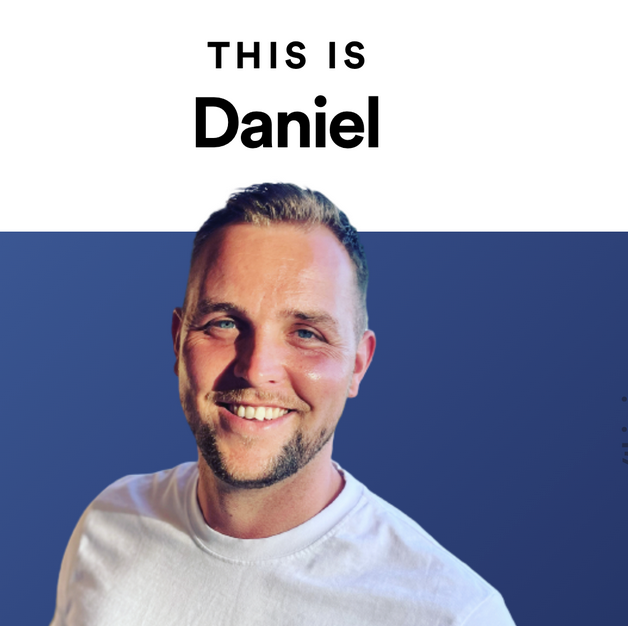
Berina Heco is a Talent Acquisition Partner at Spotify. Her area is to support hiring for Product Insights, including roles such as User Researcher, Data Scientists and Product Insights Managers. Prior to Spotify, Berina did her bachelor studies in HR and worked as a HR generalist in the healthcare sector. When she´s not hiring awesome talent to Spotify, she spends her time traveling, meditating and taking dance classes.
Daniel Baxter has been in the Tech Recruitment space for around 8 years and in that time has worked with start ups, scale ups and now is supporting Spotify with hiring for our Product Insights teams. He is an advocate for equal opportunities for all and ensuring fair and unbiased hiring process. Aside from recruitment he is a Londonder and Chelsea FC fan!
 What are frameworks and how should we use them? Join a session hosted by Stripe Partners, who will share their approach to creating impactful frameworks for client challenges. The session will be interactive—you’ll come away with ideas from how to critique frameworks and use them effectively in your own practice.
What are frameworks and how should we use them? Join a session hosted by Stripe Partners, who will share their approach to creating impactful frameworks for client challenges. The session will be interactive—you’ll come away with ideas from how to critique frameworks and use them effectively in your own practice.
Presenters:

Mujtaba Hameed is a strategist and researcher committed to solving business challenges through deep human understanding. He brings experience from the fields of strategic innovation, brand design, and ethnographic research—especially within the tech sector. Before joining Stripe Partners, most recently Mujtaba was a freelance project lead for Jigsaw (Google) and Adidas. Mujtaba holds an MA in Archaeology & Anthropology from the University of Oxford, and an MSc in Social & Cultural Anthropology from UCL.
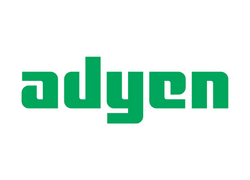
Adyen’s UX research team was created at the beginning of 2020, a time that was turbulent for much of the world. Since its creation, the team has overcome unique growth and development challenges given Adyen’s fast-paced environment and the dynamic FinTech industry in which it operates.
EPIC2022’s theme, Resilience, has made us pause and reflect on what has enabled us to grow and develop as a discipline over the last two years.
Join us to hear about our learnings and share yours!
Presenters:
Katarina Bagherian, VP of UX, Adyen
Tatiana Sidorenkova, UX Research Lead, Adyen
Gunjan Singh, Senior UX Researcher, Adyen
Sponsor Sessions
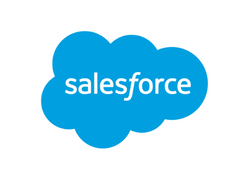 In 2022, you can append almost any sentence with “in uncertain times.” Inflation, global conflict, and our climate crisis—among others—test both our personal and professional resilience and change the way we do business. How do we ensure we’re adapting to effectively connect with our customers and stakeholders with the ever-shifting context of the world around us?
In 2022, you can append almost any sentence with “in uncertain times.” Inflation, global conflict, and our climate crisis—among others—test both our personal and professional resilience and change the way we do business. How do we ensure we’re adapting to effectively connect with our customers and stakeholders with the ever-shifting context of the world around us?
The session will begin with a short share-out from David Gardner, VP, Commerce on Salesforce’s Research & Insights team. We’ll then spend the bulk of the session on Q&A and discussion to connect and discuss.
Salesforce is an EPIC2022 Gold Sponsor
Presenters:

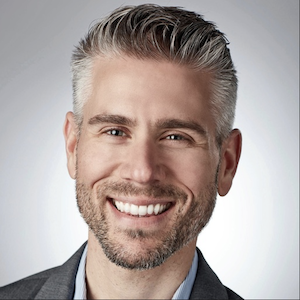
Jayme Brown is the Salesforce Research & Insight team’s senior marketing manager. With a background in storytelling, strategic communication, and digital marketing, she helps the R&I team socialize their insights across Salesforce’s many stakeholders.
David Gardner is VP, Commerce, Research & Insights at Salesforce. As a champion of the voice of the user, customer, and market, David has two decades of experience leading research and insights teams across several industries, including SaaS, retail, CPG, healthcare, and financial services.
Creative Connections
Created and hosted by Sarah Brooks (Distinguished Designer, Strategic Foresight) & Meghan L McGrath (IBM Z Future Demands Lead), IBM
Limit 125 people per session
If anything is resilient, it’s the cocktail/coffee hour. Join us in the post-post-climate dystopian future, where you can swap business cards amidst the smoldering ruins of civilization. We’ll socialize and participate in an imagined future informed by research-based signals/trends around climate change and dwindling non-renewable resources. We’ll co-create beverages and snacks in a world in which many of the key crops of 2022 are no longer available and creative substitutions have to be made: What is the climate dystopian version of the cheese board, cocktail napkins, or small talk? How will human rituals morph and shift, but somehow carry on as the world dramatically changes? And we’ll generate useful conversations about the next steps for our teams and organizations as we explore possible futures.
![]()
Thank you Gemic, EPIC2022 Gold Sponsor, for supporting the EPIC Community!
Platinum Panel – Waymo
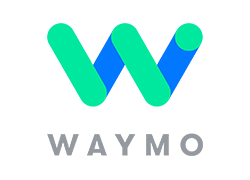
What does mobility research look like today? In the highly mediated world we’ve all become used to operating in—spending hours on end in video conference meetings, assessing trends and practices by way of social media analysis—what does it mean to be human-centered researchers and designers in the age of remote-work? And how do we, as researchers, reflect on and draw from previous jobs and research that shape us most today?
In this session, researchers of the Waymo Insights Team will open their (often remote) coffee break room and reflect on the notion of resilience for their professional and personal selves. We want to pause and reflect together on our role, roots, and challenges as researchers—and invite EPIC attendees to join us.
Panelists:

Jasmine Low is an anthropologist and UX researcher on the Waymo Insights Team, where she works closely with rider communities to understand what is meaningful to them as everyday users of Waymo’s autonomous ride hailing service. Ethnographic in approach, she regularly comes back to the question, “Whose perspective is missing?” to deliver insights and human stories that shape strategy and design across teams at Waymo.
Melissa Cefkin is a member of the Waymo Insights Team where she focuses especially on autonomous driving systems’ interactions with people in the world and on the roads. She has played many roles at EPIC, and has a long career as an anthropologist in industry, including having worked at Nissan-Renault, IBM, Sapient and the Institute for Research on Learning.
Megan Neese leads the Waymo Insights Team, an interdisciplinary team dedicated to informing product strategies and design through a fierce commitment to the people and social-cultural worlds in which autonomous driving technology is operating. Prior to Waymo, Megan was at Nissan Motors, BMW Group Designworks USA, and Samsung Design. She has sat on the Board of Directors for ISDA.
Benedikt Fischer is a Strategist & User Experience Researcher at Waymo where he is leading the company’s research efforts around trucking. Benedikt specialises in using anthropological methods to inform product features, strategies, and concept designs. Before joining Waymo, Benedikt worked as a strategy consultant at ReD Associates in Copenhagen and New York where he led strategy projects with clients across the mobility, pharmaceutical, luxury, and consumer goods industries.
Tutorial
Tutorials
Sponsor Sessions
![]()
Atlassian are the makers of tools like Confluence, Jira and Trello that are used by thousands of teams worldwide. As an early adopter of distributed and digital first ways of working, Atlassian is continually driving innovation and leading the way in bringing teams together to collaborate and work effectively. Our research organisation plays a key role in building that resilience mindset. In this (Ask Me Anything (AMA) style panel, you will meet members of the Atlassian research team, where you can ask about anything, from their personal career journeys, to challenges they have faced, and their varied and exciting career paths at Atlassian. You can hear more about the team’s growth, what they look for when hiring researchers, what the hiring and onboarding process looks like, and how we have built a thriving and robust research culture in an Agile tech company. Atlassian is an EPIC2022 Platinum Sponsor
Moderator:

Jamie Sherman is a cultural anthropologist (PhD Princeton, 2011) and Sr Researcher at Atlassian focusing on data analytics and human decision processes. Previously she has lead research at Netflix and Intel Corporation on topics as diverse as content intelligence, creative workflows, gaming, virtual reality, wearable and smart home technologies. She is a sucker for interesting and complicated questions and has been surprised and delighted to find there is a career in that. Last year she was proud to serve as co-Chair of the EPIC 2021 conference.
Speakers:
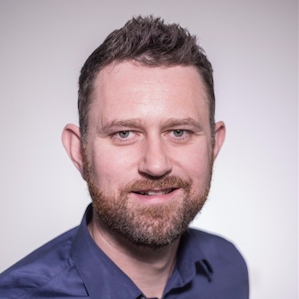

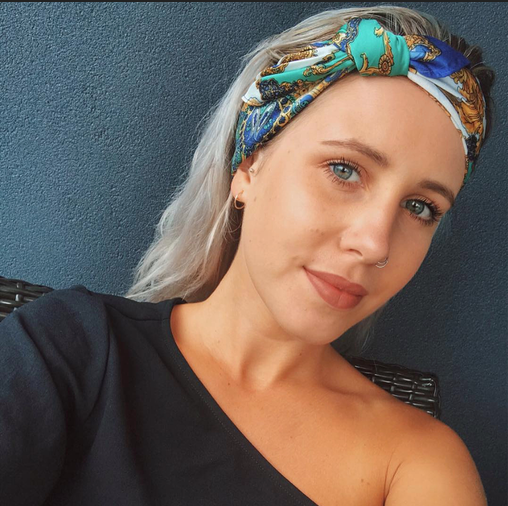

Jarrod Payne currently leads Atlassian’s Go-To-Market research program – including brand tracking, creative optimization, and pricing approaches (Conjoint). Jarrod is a research psychologist by training, specializing in quantitative research design and analysis. Whilst he has worked briefly as an academic researcher in the teaching and learning field, he has also worked primarily in brand and marketing research/strategy over the past 15 years with brands like Coca-Cola, South African Breweries, and Suncorp bank before joining Atlassian. In his spare time, Jarrod enjoys cooking complicated stuff, taking walks with his adorable dogs, and has recently convinced his wife to teach him how to knit with mixed success.
Since joining Atlassian 3 years ago, Tim Dixon has worked with teams within our Jira product and platform spaces. With a background spanning human factors psychology, socio-economic development, and UX research, Tim thrives on exploring strategic and systemic challenges across organisational contexts. He recently presented his talk, Bet you Didn’t Know You’re a UX Philosopher? at Design Research Australia, and is currently writing his second Designing Atlassian blog on using the Team Topologies framework.
Sophie Avard is a User Experience Researcher at Atlassian. I have a background in psychology and cognitive science, with a Masters of Research in Anthropology from Macquarie University in Sydney. As an anthropologist and early-career researcher, I have found a unique home in the world of UX where I can channel my passion for understanding human behaviour and motivation to help product teams build human-centered experiences.
Alice King works in the Talent Acquisition team at Atlassian and partners with the Research & Service Experience organisation. Alice plays a key role in helping build high performing, diverse and distributed teams. Alice has over 10 years recruitment experience, working in both Australia and the UK, across a range of industries and sectors. She loves engaging with talent and ensuring the end to end candidate.
100 Questions for Ethnographers: Casual Connections Networking
Wednesday,
October 5
Platinum Panel – Booking.com
With more of our daily interactions taking place online, there are both benefits and barriers for disabled people. Work from home setups can helpfully remove the need to transport assistive technology on a daily basis. Frustratingly, many still experience barriers on apps and websites that do not meet accessibility standards.
Booking.com is on a journey to learn from disabled people and how they navigate digital and physical environments, to make it easier for everyone to experience the world.
In this session we will provide the background and context on how we see that accessibility and resilience intersect. We will share how researchers at Booking.com are bringing the voice of disabled people to product teams to make travel more accessible.
Join us to participate in a range of interactive exercises to explore how this could apply to your work.
Moderator
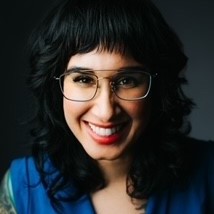
Kirin Khan (she/they), Senior Research Manager, has worked in people management for the past decade, across a range of industries. She directed political polling research at YouGov, developed and led the quantitative research team at Twitter, and joined Booking last year to lead research teams across the Trips and FinTech business units. Prior to working in tech, she focused on non-profit and public policy, and brings her advocacy experience to the forefront as the research leadership sponsor for Sustainability, Accessibility, and Inclusivity taskforce at Booking.
Panelists
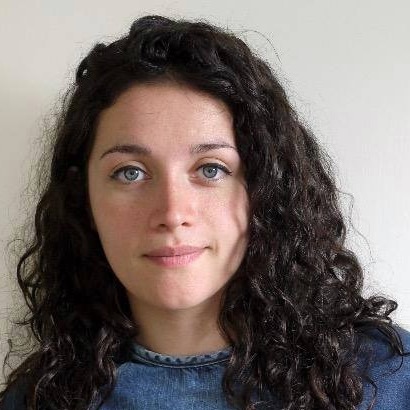
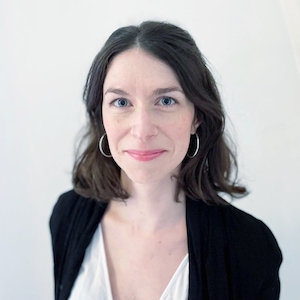


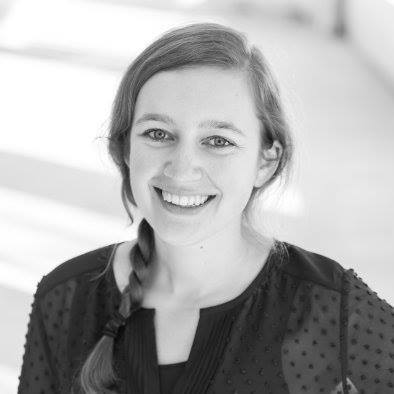
Maya Alvarado (she/her) is a senior user researcher and service designer who specializes in inclusive and accessible design. She applies a hands-on and participatory approach to research, prototyping and development. She is passionate about creating brilliant products and services that make people’s lives easier.
Isabelle Rodot (she/her) has worked as a user researcher at Booking.com for the past 4 years. With a background in product innovation, brand and communication research, she now focuses on sustainability to make it easier for travelers to find and book more sustainable travel options.
Ula Lewicka (she/her) is a researcher supporting Booking.com teams to make the mobile app user experience simple, intuitive, engaging and for everyone. She enjoys trying out new research methods and solving various problems and she loves it when her work improves someone else’s experience!
Alessandra Este (she/her) has worked as a user researcher at Booking.com for the past 5 years. She focuses on Inclusivity across the traveler experience, and leads FinTech partner research as well.
Franca van der Borden (she/her/hers), Senior Researcher, has extensive experience in both marketing research and user experience research. She is an advocate for accessibility and inclusivity. She’s worked at Booking for 6 years, and currently focuses on Trip Horizontals, including the end-to-end traveler experience.
Platinum Panel – Spotify

Over the past 2.5 years, researchers have had to become more resilient and adaptable in how they conduct research. Now that things are bouncing back, we’re at a crossroads in deciding what the future of user research looks like.
In this panel, leading members of Spotify’s product insights community will discuss different perspectives on how researchers have adapted from face-to-face research to remote settings, and the adaptations we intend to keep in a hybrid practice. We will contemplate how this hybrid practice can morph depending on various topics, such as community making and the audio space.
We’ll include some interactive components to encourage dialogue, and it will be a discussion you don’t want to miss!
Creative Connections
Created and hosted by Preeti Talwai (UX Research Lead), Keita Wangari (Staff UX Researcher) & Luca Paulina (Senior UX Designer), Google
Limit 75 people per session
Too often in complex, resource-constrained and fast-paced organizational environments we design only for the ideal “happy paths”—human journeys get watered down and nuance is pushed to the side. It’s imperative that organizations support the inevitable changes of real life so they can build enduring relationships with the people they serve. In this workshop we’ll build language and tools to re-engage organizations with the messiness, grit and reality of actual life journeys. We’ll walk through an exercise to view human journeys with a “resilience lens” and examine how products and services can be designed to learn and adapt to change. Participants will take away a set of tools to build more robust experiences by anticipating opportunities, mitigating harms, and designing for dynamism.
Creative Connections – Conversations in Resilience
Conversations in Resilience are Salons—an EPIC tradition. We’ll gather in small groups to discuss special topics in ethnography and resilience. Facilitated by hosts who guide participants with inspiring or provocative questions or scenarios, Salons offer a space where attendees share candidly, experiment with evolving ideas, and connect to EPIC people with similar interests. No prep. You’ll choose from the following concurrent conversations on our conference platform:
Inclusive ResilienceDisabled people have always had to be resilient to thrive in a world that is typically not designed for them. The onset of the pandemic highlighted the need for adaptations that have long been advocated by disabled people, with work-from-home being only the most prominent example. Yet, as people adapt to new ways of working and living, and companies increasingly cater to employee and customer desires for flexibility, many in the disability communities have lamented that they are again being left out of recent “progress.” This salon will interrogate the inequities hidden within the now-mainstream idea that we, as a society, are unified in our resilience in the face of the current and ongoing public health crisis, and it will ask how research can learn from the experiences of disabled people to make new adaptations inclusive of everyone.
Host:
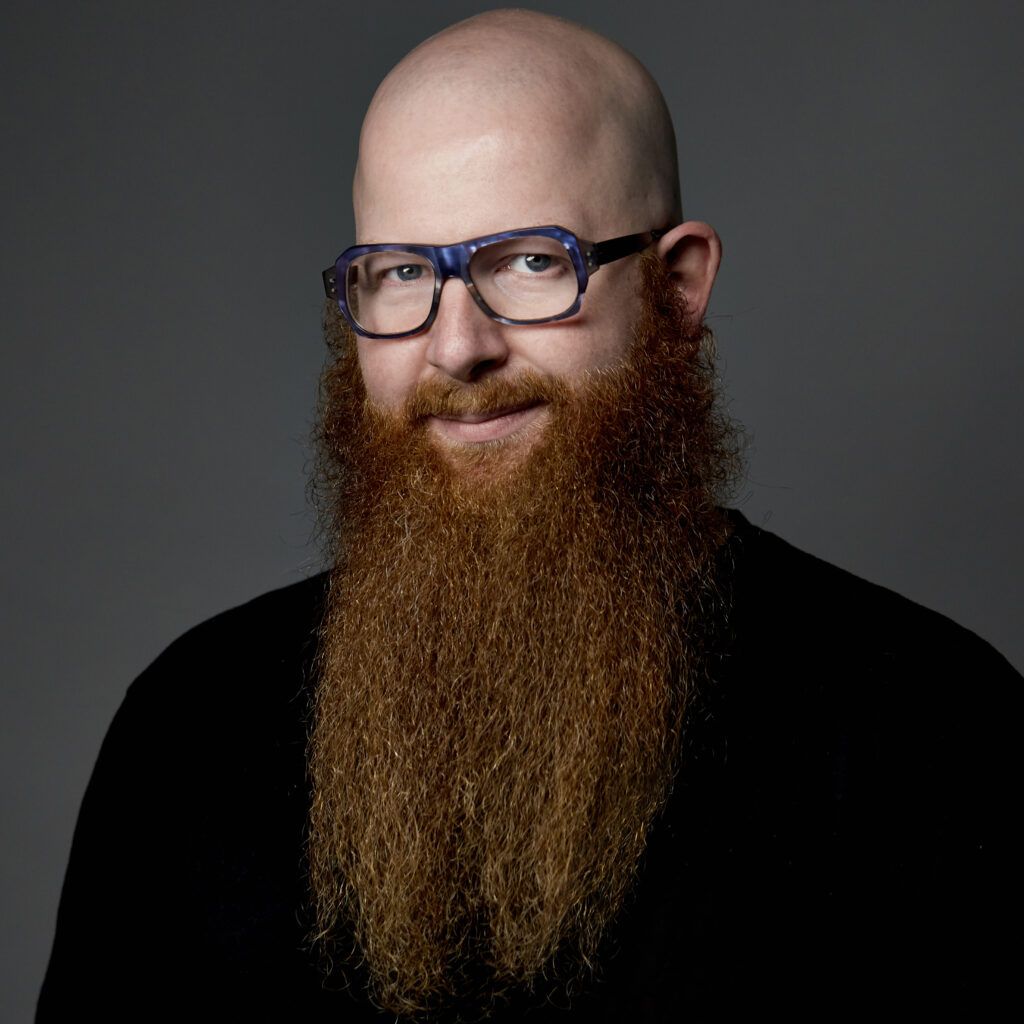
Greg Weinstein is a design researcher who focuses on inclusive research methods to make designs accessible and equitable. In a former life, he was an ethnomusicologist who studied ideologies of sound in recording studios. He is currently the Inclusive Research Lead on CVS Health’s Design Accessibility team.
At first glance, “resilience” seems an admirable thing to strive for. But if artifacts have politics, surely aspirations are also value-laden and politically motivated. In this session we will explore what is smuggled into the conversation along with “resilience” – who is centred in this concept? Who benefits from whose resilience? How does resilience construct the person? What does a reflexive and reactive acceptance of “resilience” enable or disable? How are we witnessing, enabling, or inhibiting the contestation of this concept? Bring stories, autoethnographies, unease, historical narratives, and inspirational cliches you love to hate. All are welcome.
Host:
 Arvind Venkataramani (he/they) is a senior user experience researcher at HashiCorp, where his stakeholders think he delivers insights into user experience, but where he actually spends his time creating tools and containers for learning, discovery, and collaboration. He dislikes writing third-person bios and would rather you connect with him about systems, ritual, decolonization, embodiment, discourse traps, mindfulness, the sociological eye, and eldritch horrors of the modern era.
Arvind Venkataramani (he/they) is a senior user experience researcher at HashiCorp, where his stakeholders think he delivers insights into user experience, but where he actually spends his time creating tools and containers for learning, discovery, and collaboration. He dislikes writing third-person bios and would rather you connect with him about systems, ritual, decolonization, embodiment, discourse traps, mindfulness, the sociological eye, and eldritch horrors of the modern era.
When COVID hit, the act of social distancing imposed an immediate challenge to all of us. And for ethnographers, the pandemic forced us to think of new ways to be human centred at a distance—both within our organisations, and in relation to our research participants outside them. Its easy to focus on whats been challenging, and maybe even lost. But in this session, I want to invite you to discuss the benefits of being forced to think creatively about how to stay intimate when apart.
The disruptive global event has helped us all to look at classical ethnographic themes like empathy, intimacy and belonging in new, creative ways. What have we learned about resilience through our organizational practices post-pandemic? Perhaps you’ve found new ways of engaging as a team? New rituals or customs to enable coherence in your organisations? How about meaningful conversations about flexibility? Or new normals in terms of remote work?
Host:

Louise Vang Jensen is the anthropological lighthouse of IS IT A BIRD, and as director of research and insights, she is driven by an urge to place human needs and aspirations at the core of the strategic development of organisations. With a track record of collaboration counting VELUX, Novo Nordisk and Nike, Louise has developed a solid innovation toolbox enabling her to tailor approaches, processes and deliverables with a clear focus on real world problems.
To have Black Hair is to be constantly designing, constantly prototyping. The number of experiences and products that make having Black Hair a core experience design challenge are countless and include, but are not limited to: physical products such as headwear and beauty products; digital products such as webcams, algorithms, and datasets (or lack thereof); and real life experiences such as shopping in the “Ethnic Hair Aisle” or having one’s hair searched at TSA Security. In this salon, we use Black Hair as a prompt to discuss resiliency by exclusion and formulate new ways of thinking about designing resilient processes that yield inclusive products.
Host:
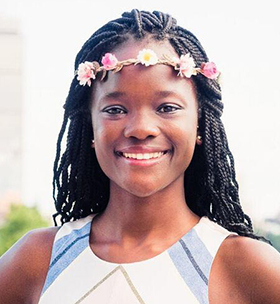 Arwa Michelle Mboya is a designer and researcher in the XR industry, currently working for Magic Leap. She has a Bachelor of Arts from Yale University and a Master’s of Science from the MIT Media Lab. While at MIT, Arwa studied the implications of immersive technology on the imagination. She led the first Pan-Africa AR/VR Hackathon in Nairobi and designed a new VR headset (based on Oculus Go) as a result of research on how women in informal settlements interact with VR. Arwa is from Nairobi, Kenya.
Arwa Michelle Mboya is a designer and researcher in the XR industry, currently working for Magic Leap. She has a Bachelor of Arts from Yale University and a Master’s of Science from the MIT Media Lab. While at MIT, Arwa studied the implications of immersive technology on the imagination. She led the first Pan-Africa AR/VR Hackathon in Nairobi and designed a new VR headset (based on Oculus Go) as a result of research on how women in informal settlements interact with VR. Arwa is from Nairobi, Kenya.
With its power of unfolding behavioral and social patterns, ethnographic research has recently gained a lot of attention in industry. More and more companies hire ethnographers as pathfinders, strategic researchers, and UX Researchers to learn more about their target audiences and existing users. There is no doubt that this is a positive shift for both ethnographers, who have more opportunities to conduct research, and companies that benefit from ethnographic research’s holistic insights about their new and existing users. However, how resilient has ethnography been in industry (e.g., tech companies), especially in light of recent crises, such as the pandemic, and research teams being downsized due to layoffs? In this salon, we will dive deeper into conversations about the resilience of ethnography in fast-moving companies, the ideas and practices of ethnography that have been maintained, heavily practiced, changed, and lost by ethnographers who work in industry. We will also have discussions about ways to maintain resilience from social and emotional perspectives.
Hosts:
 Ayfer Gokalp is an anthropologist, investigating ways to make AR/VR technologies safe and trustworthy. Ayfer currently manages VR Platform Privacy, Integrity, and Youth Safety UX Research team in Reality Labs at Meta. Ayfer is a thought leader in integrity, privacy, and inclusion areas, pioneering in the way women experience future technologies, including AR and VR. With her in-depth expertise and versatility, Ayfer is a trusted support by leadership, delivering critical insights that lead to shaping the direction and vision of the products. She dreams of a world where everyone is accepted for who they are and their unique identities are cherished as their superpowers. Ayfer firmly believes in the power of future technologies as a way to build a more inclusive and empowering world. She holds a PhD in Linguistic Anthropology from Arizona State University and actively publishes articles and presents at conferences in anthropology and UX research areas.
Ayfer Gokalp is an anthropologist, investigating ways to make AR/VR technologies safe and trustworthy. Ayfer currently manages VR Platform Privacy, Integrity, and Youth Safety UX Research team in Reality Labs at Meta. Ayfer is a thought leader in integrity, privacy, and inclusion areas, pioneering in the way women experience future technologies, including AR and VR. With her in-depth expertise and versatility, Ayfer is a trusted support by leadership, delivering critical insights that lead to shaping the direction and vision of the products. She dreams of a world where everyone is accepted for who they are and their unique identities are cherished as their superpowers. Ayfer firmly believes in the power of future technologies as a way to build a more inclusive and empowering world. She holds a PhD in Linguistic Anthropology from Arizona State University and actively publishes articles and presents at conferences in anthropology and UX research areas.

Marie Mika is a sociologist and Staff Researcher at Included Health, leading virtual primary care research. Previous clients include Ford, Genentech, Google, Hyundai, and Whirlpool, and she is proud that her studio’s game won Google Play’s 2019 Best of Casual Games. Please feel free to contact her at marie.mika@includedhealth.com.
Platinum Panel – Atlassian
In this panel, moderated by Head of Research & Service Experience, Leisa Reichelt, Atlassian researchers and data scientists will explore how different crafts, methodologies, and perspectives came together to evolve one of our most important customer archetypes; the champion.
Showcasing the power of a research community, panelists will reflect on how they contributed to the evolution of this critical archetype by employing a range of research methods and cross-craft explorations.
Join us to learn how we applied qualitative data, innovative survey design and partnerships with other crafts to opportunistically apply a refreshed champion concept to emerging business strategies and leadership asks. We’ll discuss how we devised and executed on a research program that applied mixed methods approaches for greater confidence and impact.
Moderator:
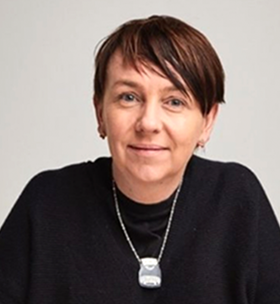
Leisa Reichelt leads the Research and Service Experience team at Atlassian, a company which is already focused on developing and unleashing the potential of all its teams. Having worked in both the UK and Australia, Leisa has spent time building research capabilities within government digital teams, helping them to create easier and more accessible public services. She has consulted with a mix of London tech startups and household name brands such as The Economist, BBC, Virgin Atlantic and many more. Although she loves research, Leisa’s passion is in enabling organisations to transform themselves through gaining a compelling and closer understanding of the user needs they serve.
Panelists:
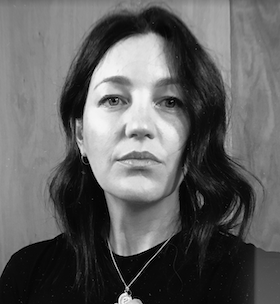
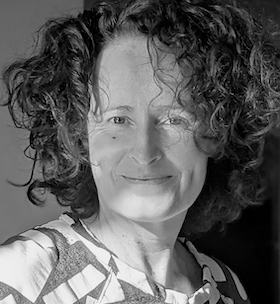
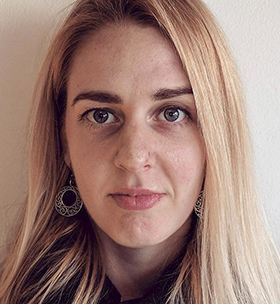

Sarah Hyne is a Lead Researcher at Atlassian. Her background spans graphic design, UX, anthropology, HCD and behavioural science. She’s endlessly fascinated by humans and culture and the ways the design of things affects lives, for better or worse. She works with teams at Atlassian to make our products simpler, smarter, more helpful and more meaningful for customers.
Natalie Rowland, Lead Researcher at Atlassian, is a qualitative researcher dedicated to the craft of design and social research. With a background in market research, video ethnography, and behaviour change, Natalie tunes into emerging needs and strives to bring decision-makers and designers closer to customer needs, environments and goals. She loves learning about teams and more human ways of working and is shaping how Atlassian products work together.
Gillian Bowan, a Lead Researcher at Atlassian, an anthropologist who completed field research in South India before shifting into user experience research in 2013. She has worked in service design for government and in the health sector. Passionate about multidisciplinary teamwork and improving ways of working, she is now at Atlassian, solving problems for all kinds of teams. She has a PhD in anthropology from Macquarie University.
André Jansson is a Senior Product Analyst at Atlassian. Having a keen interest in human behavior and data made product analytics is a perfect match for André. Always striving to understand how and why customers are using products the way they do, and what impact this has to the business as a whole, is something that drives André in his day to day.
Thursday,
October 6
Tutorials
Sponsor Sessions

We believe that Gemic is a great example of a truly resilient company that came to being amidst the crisis of 2008 and was able to double the size during the global pandemic. During this session we would like to share how the company has evolved over time and what stayed unchanged. We are going to share this story through our personal journeys at Gemic, as well as the work we do for our clients and how we do it.
Gemic is an EPIC2022 Gold Sponsor
Presenters:
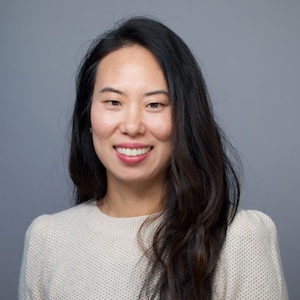
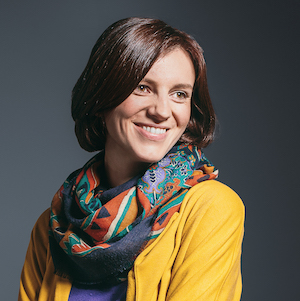

Rebekah Park is a Partner based in Gemic’s New York City office and works primarily within tech and healthcare. She has spent the last two decades applying anthropological theory and methods to create change through her work in business, academia, public policy, and NGOs. Previously, she worked at ReD Associates, was a tenure-track professor at Marlboro College in Vermont, and worked at policy think tanks including the Poverty and Race Research Action Council and African American Policy Forum. Rebekah holds a PhD in Anthropology from UCLA, a MA in Applied Medical Anthropology from University of Amsterdam (the Netherlands) where she was a Fulbright scholar, and a BA in American Studies from Northwestern University.
Liubava Shatokhina is Research Lead based in Gemic’s Helsinki office. She believes that anthropological imagination paired with critical thinking can uniquely inform complex business decisions. Intensely curious about human behavior and the cultural factors that shape it, Liubava has worked with companies across automotive, tech, food, facility management and more to develop systemic approaches to innovation and growth. Liubava holds three master’s degrees, in the philosophy of culture, comparative sociology, and cultural anthropology. Before joining Gemic, Liubava worked as a researcher at the Center for Science and Technology Studies at the European University at St. Petersburg, taught social science in and outside academia, and organized art events to foster social change.
Todd Carmody is a Senior Strategist based in Gemic’s New York Office. He is an innovation and strategy consultant, the author of a book on social policy and the future of work, and an expert in the U.S. and German markets. He draws on his interdisciplinary expertise and global perspective to help clients act on what is not yet common sense. Todd holds a Ph.D. from the University of Pennsylvania and has been a research fellow at Harvard, Berkeley, and the Freie Universität Berlin. At Gemic, he advises senior leaders in social technology, mobility, and higher education, among other sectors.
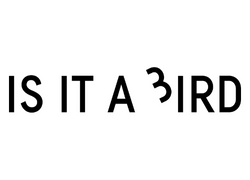
Accelerating, blitz scaling, failing fast to succeed sooner. These are just a few examples of a fundamental paradigm in innovation – that it is all about the high pace! It is as if speed itself is a goal.
In our session we want to reflect on the pace of innovation. Drawing on 10 years of experiences as innovation consultants at the Copenhagen based agency IS IT A BIRD, we have come to believe that a disproportionate focus on the high pace phases of innovation can obscure something else that is at least as important. Slowing down the pace. Changing the energy. Focusing on being instead of doing, on observing, listening and sensing, as crucial elements of any investigation and exploration of what is emerging. We argue, that there are times where we need to act fast, and times where we need to stand still in order to detect what is moving around us.
In our session we want to invite for a discussion on this topic. How do you see us utilizing different rhythms at different times in the creative process. And how do you see us planning our processes to accommodate for both fast and slow paces and optimise the positive impact?
IS IT A BIRD is an EPIC2022 Silver Sponsor
Presenters


Rasmus Thomsen has more than 15 years’ experience as a business consultant on strategic innovation. He has a unique eye for identifying new business opportunities and is heavily inspired by Design Thinking, in which he is educated from d.school at Stanford University. He works effortless in the cross section between business, design and research, giving a natural focus on desirability, feasibility and viability in innovation projects for clients such as Nike, Henkel and Maersk.
Louise Jensen is our anthropological lighthouse and as managing director of research and insights. She is driven by an urge to place human needs and aspirations at the very core of the strategic development of organisations. With a track record of collaboration counting VELUX, NOVO and NIKE Louise has developed a solid innovation toolbox enabling her to tailor approaches, processes and deliverables with a clear focus on real world problems. Louise puts her skills into play both when driving analytical processes, and when building up innovation capacity in client organisations.
 Hosts:
Hosts:
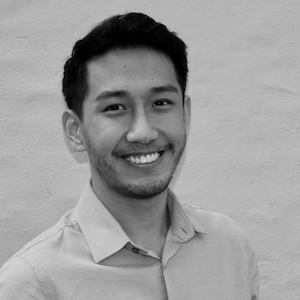
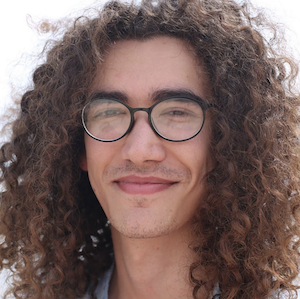
Fred Guo is a Senior Consultant based in ReD’s Paris office. His experience spans across multiple sectors from healthcare to luxury consumer goods, always providing clients with tangible recommendations in the areas of marketing, design innovation, and strategic value propositions. Prior to joining ReD, Fred has worked in investment banking in New York, education in Shanghai, and luxury hospitality in London, while also holding the rank of Full Lieutenant in the Singapore Armed Forces. Fred graduated from Williams College with a triple major in Economics, Political Science and French.
Ariel Abonizio is a Brazilian anthropologist, strategist, and artist based in New York City. As a Senior Consultant at ReD Associates, Ariel has worked primarily in the technology industry, helping clients disentangle the technical, social, and emotional components that undergird consumer behaviors for social media, AR/VR, chip manufacturing,
Career Connections
Created and hosted by: Veronica Hotton, Ecochallenge.org & co-instructor, Representing Your Professional Self
Limit 20 people per session
When you’re making a career shift, or even just exploring the landscape of possibilities, informational interviews are a key strategy to learn, network and advance your goals. They offer a structured format for engaging with an experienced mentor or peer that can yield concrete information as well as unexpected insight and inspiration. Some tips and strategies—plus practice with supportive EPIC members—can make them much more rewarding for you and the people you interview.
This event is designed for people at any career stage making a shift, whether you have your eye on a new role, industry or sector, or you are transitioning out of academia. You’ll be matched with EPIC members who have volunteered to be interviewed for two rounds of 20-minutes. Tips and interview guides will be provided to help you prepare. The guides will include a range of topics, such as sector/role transitions, workplace culture, and general career mentorship; you can adapt them to your own purposes or take a totally different approach.
This event is especially useful for those who find networking awkward or daunting, but know they want to be able to network more often and with a little more ease and grace. Using ethnographic and social science approaches to informational interviews, we can let those butterflies in our stomachs rest. And with practice, it’s possible to see these interactions as another kind of interview we are skilled at using throughout our careers. And really, don’t we love listening to people share their stories? Seats in this session are limited, so register early!
Creative Connections
Created and hosted by Preeti Talwai (UX Research Lead), Keita Wangari (Staff UX Researcher) & Luca Paulina (Senior UX Designer), Google
Too often in complex, resource-constrained and fast-paced organizational environments we design only for the ideal “happy paths”—human journeys get watered down and nuance is pushed to the side. It’s imperative that organizations support the inevitable changes of real life so they can build enduring relationships with the people they serve. In this workshop we’ll build language and tools to re-engage organizations with the messiness, grit and reality of actual life journeys. We’ll walk through an exercise to view human journeys with a “resilience lens” and examine how products and services can be designed to learn and adapt to change. Participants will take away a set of tools to build more robust experiences by anticipating opportunities, mitigating harms, and designing for dynamism.
Tutorial
Tutorial
Monday,
October 10
Keynote: Payal Arora
 Payal Arora is a digital anthropologist, Professor at Erasmus University Rotterdam, and Co-Founder of FemLab, a future of work initiative. Her expertise lies in user experience in the global south, digital inequality, and inclusive design. Forbes named her the “next billion champion” and the “right kind of person to reform tech.”
Payal Arora is a digital anthropologist, Professor at Erasmus University Rotterdam, and Co-Founder of FemLab, a future of work initiative. Her expertise lies in user experience in the global south, digital inequality, and inclusive design. Forbes named her the “next billion champion” and the “right kind of person to reform tech.”
Livestream, then on-demand in our conference platform.
Concurrent Sessions
Livestream, then watch on-demand.
Talking Resilience: The Transformative Power of Shared NarrativesThe contributions in this session highlight the power of collaborative, dialectic narratives in unpacking resilience. Through humor, storytelling, visualization and linguistic craft, these contributions offer insight into various lenses that we can use to examine the work we do and the footprint it leaves on others and ourselves.
Cultivating Resiliency for All: The Necessity of Trauma-Informed Research Practices (Paper)
Matthew Bernius, Code for America
Rachael Dietkus, Social Workers Who Design
Design & Resilience: Teachings of Mothers of Deaf Hearing Children to Face Unprecedented and Initially Stressful Realities (Paper)
Renata de Assunção Neves, PPG Design
Vera Maria Marsicano Damazio, PPG Design
Jackeline Lima Farbiarz, PPG Design
Clarissa Schitine, Federal University of Bahia
Mapping the Messy: Storytelling-as-Resilience, Reframing, Academia-as-Fieldsite (PechaKucha)
Lisa Koeman, Elsevier
Laughing All the Way to EPIC (PechaKucha)
Evan Hanover, Conifer Research
Resilience requires us to go past established processes, tools and frameworks as our guides. These presenters shift our perspective on the theories that guide our work, renew our attention to what we know about positionality, reflexivity, place and practice, and even consider ways in which our practices are performative acts. The Papers and PechaKuchas in this session share a commitment to ensuring that the techniques we build and employ are flexible and adaptive to dramatic change.
Theory Instruments as Tangible Ways of Knowing (Paper)
Jessica Sorenson, University of Southern Denmark
Mette Gislev Kjærsgaard, University of Southern Denmark
Jacob Buur, University of Southern Denmark
Mary Karyda, University of Southern Denmark
Ayşe Özge Ağça, University of Southern Denmark
Beyond Zoom Fatigue (Paper)
John Sherry, Intel
Ethnography as a Feedback Loop: Designing Complex, Automated Systems (Paper)
Kelsie Nabben, Royal Melbourne Institute of Technology
Michael Zargham, Vienna University of Economics & Business
Resilient Credit (PechaKucha)
Rachel Aalders, Australian National University
Show Must Go On: How Can Ballet Help Us Strengthen Ethnographic Practice? (PechaKucha)
Almina Karya Odabasi, Vrije Universiteit Amsterdam
Cato Hunt, Space Doctors
Curator: Guillaume Montagu, unknowns
Our current language of business is no longer fit for purpose. We are all sharply aware of the urgent need to transition into a regenerative economy, yet the words we use are holding us back. We must stop using vocabulary which roots us within a failing system and instead create a new lexicon of resiliency. By introducing new concepts and metaphors we can redefine organizational success through new values and behaviors which embody the changes we must make. Join us for a LIVE 3-day hive mind where we come together to co-create some inspiring new starting points for this journey.
Concurrent Sessions
Livestream, then watch on-demand.
Creating More Resilient FuturesThe Papers and PKs in this session address resilience in method and practice when confronted with uncertain and adverse situations. When and how does agency, self-awareness, creativity and the imagination become fundamental to the work we do? How do we make the very methods we use resilient when our subjects are uncertain? What stake do these approaches have in making futures for our subjects and for our very practice?
Rehearsing Imagined Futures: Creative Performance as a Resilient Process Among Refugees (Paper)
Nicole Aleong, University of Amsterdam
Building Resilient Futures in the Everyday: Virtual Worlds and the Social Resilience of Teens During COVID-19 (Paper)
Julian Gopffarth, Stripe Partners
Rebecca Jablonsky, Google
Cath Richardson, Stripe Partners
Beneath the Hype: Self-Ethnography to Explore the Human Possibilities within NFT Technology (PechaKucha)
Jake Silva, Meta
Becoming Digitally Resilient: Understanding the Gap between Online Government Services and Low Ability Users (PechaKucha)
Yoni Lefevre, STBY bv
Dorota Gazy, STBY bv
Navigating Matters Charged with Controversy (PechaKucha)
Stefani Bachetti, Motorola Solutions
More and more corporations are taking responsibility for societal change and the mark they leave within the world, demonstrated by how they focus on diversity in advertising or inclusive design practices. Public organizations, by definition, are rooted in a society-based purpose, but are believed to be slow-moving in implementing decisions. Yet, we’re also seeing a shift in governments recognizing the need to accelerate digital transformation and innovation. In this session, we learn from four case studies across the public and private sectors that demonstrate ethnography leading the way: creating resilient organizations and resilient futures for the public good. Participate in this session if you are curious about designing better social systems, large-scale implementation of ethnographic methods in public organizations, diversity representation in advertising, and technology inclusion for people with hearing impairment.
How a Government Organization Evolved to Embrace Ethnographic Methods for Service (and Team) Resilience (Case)
Colin MacArthur, Bocconi University
Mithula Naik, Canadian Digital Service
Designing and Envisioning a More Resilient Social System (Case)
Sofia Carvalho, With Company
Dismantling Stereotypes: Taking an Inside-Out Perspective to Building Better Representation in Advertising for Unilever (Case)
Stephanie Barrett, Quantum Consumer Solutions
Designing and Conducting Inclusive Research: How a Big Tech Company and an Online Research Platform Partnered to Explore the Technology Experiences of Users who are Deaf and Hard of Hearing (Case)
Dana Gierdowski, Lenovo
Karen Eisenhauer, dscout
Peggy He, Lenovo
Virtual Session
Grab a coffee or tea and join Zarla Ludin (Research Director, Craft) and Maria Vidart-Delgado (Sr Design Researcher, Xero) online to debrief and discuss key takeaways from your favorite presentations.
Concurrent Sessions
Livestream
Town HallsIn Town Halls, all attendees have the opportunity to share, explore and debate about core issues around resilience and ethnographic work. They are facilitated by leaders in the EPIC community who will offer reflections, provocations and wisdom to guide our conversations.
Concertzaal

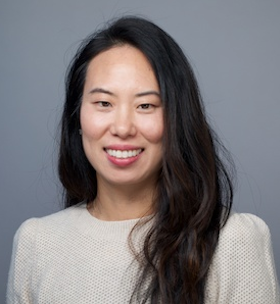
Leisa Reichelt leads the Research and Service Experience team at Atlassian, a company which is already focused on developing and unleashing the potential of all its teams. Having worked in both the UK and Australia, Leisa has spent time building research capabilities within government digital teams, helping them to create easier and more accessible public services. She has consulted with a mix of London tech startups and household name brands such as The Economist, BBC, Virgin Atlantic and many more. Although she loves research, Leisa’s passion is in enabling organisations to transform themselves through gaining a compelling and closer understanding of the user needs they serve.
Rebekah Park is a Partner at Gemic based in New York, working primarily within tech and healthcare. She has spent the last two decades applying anthropological theory and methods to create change through her work in business, academia, public policy, and NGOs. Previously, she worked at ReD Associates, was a tenure-track professor at Marlboro College in Vermont, and worked at policy think tanks including the Poverty and Race Research Action Council and African American Policy Forum. Rebekah holds a PhD in Anthropology from UCLA, a MA in Applied Medical Anthropology from University of Amsterdam (the Netherlands) where she was a Fulbright scholar, and a BA in American Studies from Northwestern University.
Zuilenzaal
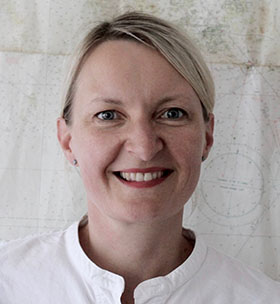
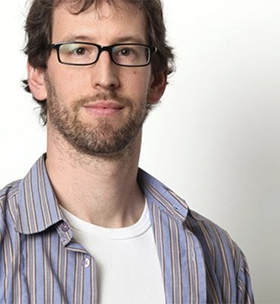
Heli Rantavuo is Director of Product Insights at Spotify, working at the intersection of innovation, design and ethnography. Heli has worked as applied researcher and research leader at eBay, Microsoft and Nokia, and as academic researcher at LSE, Waseda University and Aalto University, where she also earned her Doctor of Arts in New Media Design. She mentors at start-ups and gives industry talks on human-centred design and applied ethnography. Heli is co-founder and board member in the Human Sciences in Strategy Finland association and member of the steering committee for the EPIC2022 conference. She loves sailing, winter swimming and cocktails with Campari.
Martin Ortlieb is a user experience researcher at Googler Germany currently looking at how to keep knowledge workers productive, happy and committed at work. He researches processes of integrating the best work tools with human social needs to build effective teams and a resilient company culture. This is a long-standing interest: his PhD focused on the imagination of identity through conceptions of work, and he has published on conceptualizations of ‘culture’ in commercial ethnography. Giving back to the communities that nurture and host Martin both is really important to Martin, like being a member of the steering committee for the EPIC2022 conference. He recently went demonstrating with Greta Thunberg, just adopted two kittens, and likes good conversation.
Virtual Session
Watch party, discussion & meet-up hosted by Jamie Sherman, Senior Researcher, Atlassaian
Keynote: Payal Arora Payal Arora is a digital anthropologist, Professor at Erasmus University Rotterdam, and Co-Founder of FemLab, a future of work initiative. Her expertise lies in user experience in the global south, digital inequality, and inclusive design. Forbes named her the “next billion champion” and the “right kind of person to reform tech.” Read more about keynote speakers
Payal Arora is a digital anthropologist, Professor at Erasmus University Rotterdam, and Co-Founder of FemLab, a future of work initiative. Her expertise lies in user experience in the global south, digital inequality, and inclusive design. Forbes named her the “next billion champion” and the “right kind of person to reform tech.” Read more about keynote speakers
Resilience requires us to go past established processes, tools and frameworks as our guides. These presenters shift our perspective on the theories that guide our work, renew our attention to what we know about positionality, reflexivity, place and practice, and even consider ways in which our practices are performative acts. The Papers and PechaKuchas in this session share a commitment to ensuring that the techniques we build and employ are flexible and adaptive to dramatic change.
Theory Instruments as Tangible Ways of Knowing (Paper)
Jessica Sorenson, University of Southern Denmark
Mette Gislev Kjærsgaard, University of Southern Denmark
Jacob Buur, University of Southern Denmark
Mary Karyda, University of Southern Denmark
Ayşe Özge Ağça, University of Southern Denmark
Beyond Zoom Fatigue (Paper)
John Sherry, Intel
Ethnography as a Feedback Loop: Designing Complex, Automated Systems (Paper)
Kelsie Nabben, Royal Melbourne Institute of Technology
Michael Zargham, Vienna University of Economics & Business
Resilient Credit (PechaKucha)
Rachel Aalders, Australian National University
Show Must Go On: How Can Ballet Help Us Strengthen Ethnographic Practice? (PechaKucha)
Almina Karya Odabasi, Vrije Universiteit Amsterdam
Virtual Session
Watch party, discussion & meet-up hosted by Gladys Rosa-Mendoza, Experience Research & Strategy, Meta.
Creating More Resilient FuturesCurators: Hilja Aunela, Noren and Rogério Lourenço, Cross Project Resources
These presentations address resilience in method and practice, when confronted with uncertain and adverse situations. When and how does agency, self-awareness, creativity and the imagination become fundamental to the work we do? How do we make the very methods we use resilient when our subjects are uncertain? What stake do these approaches have in making futures for our subjects and for our very practice?
Rehearsing Imagined Futures: Creative Performance as a Resilient Process Among Refugees (Paper)
Nicole Aleong, University of Amsterdam
Building Resilient Futures in the Everyday: Virtual Worlds and the Social Resilience of Teens During COVID-19 (Paper)
Julian Gopffarth, Stripe Partners
Rebecca Jablonsky, Google
Cath Richardson, Stripe Partners
Beneath the Hype: Self-Ethnography to Explore the Human Possibilities within NFT Technology (PechaKucha)
Jake Silva, Meta
Becoming Digitally Resilient: Understanding the Gap between Online Government Services and Low Ability Users (PechaKucha)
Yoni Lefevre, STBY bv
Dorota Gazy, STBY bv
Navigating Matters Charged with Controversy (PechaKucha)
Stefani Bachetti, Motorola Solutions
Curators: Oskar Korkman, Alice Labs and Anni Ojajarvi, Swanlake
Corporations increasingly take responsibility for societal change and the mark they leave within the world, demonstrated by how they focus on diversity in advertising or inclusive design practices. Public organizations, by definition, are rooted in a society-based purpose and now look to accelerate digital transformation and innovation. In this session, we learn from four case studies across the public and private sectors that demonstrate ethnography leading the way: creating resilient organizations and resilient futures for the public good. Participate in this session if you are curious about designing better social systems, large-scale implementation of ethnographic methods in public organizations, diversity representation in advertising and technology inclusion for people with hearing impairment.
How a Government Organization Evolved to Embrace Ethnographic Methods for Service (and Team) Resilience
Colin MacArthur, Bocconi University
Mithula Naik, Canadian Digital Service
Designing and Envisioning a More Resilient Social System
Sofia Carvalho, With Company
Dismantling Stereotypes: Taking an Inside-Out Perspective to Building Better Representation in Advertising for Unilever
Stephanie Barrett, Quantum Consumer Solutions
Designing and Conducting Inclusive Research: How a Big Tech Company and an Online Research Platform Partnered to Explore the Technology Experiences of Users who are Deaf and Hard of Hearing
Dana Gierdowski, Lenovo
Karen Eisenhauer, dscout
Peggy He, Lenovo
Tuesday,
October 11
Keynote: Kurt Ward
 Kurt Ward is a Senior Design Director at Philips Healthcare, based in the Netherlands. His goal is to design sustainable and adaptable health systems by redefining the social determinants of health and reframing humanity’s relationship with the natural world.
Kurt Ward is a Senior Design Director at Philips Healthcare, based in the Netherlands. His goal is to design sustainable and adaptable health systems by redefining the social determinants of health and reframing humanity’s relationship with the natural world.
Livestream, then watch on-demand
Concurrent Session
Livestream, then watch on-demand.
Critical Perspectives on Embracing Resilience (Zuilenzaal)This session critically evaluates conventional ideas and practices resilience to reveal paradoxes and pitfalls. The Papers and PechaKuchas will show how resilience can be either a toll or an opportunity to create systems of reciprocal care. Presenters also provide tools and fresh ideas to reframe the concept of resilience in turbulent times.
Jobs Not to be Done: Anti-Work Politics and the Resilience of Mutual Aid (Paper)
Todd Carmody, Gemic
Against Resiliency: An Ethnographic Manifesto (Paper)
Lauren Rhodes, Cisco
Jillian Powers, Cognizant Technologies
Beyond Representation: Using Infrastructure Studies to Reframe Ethnographic Agendas and Outcomes (Paper)
Karl Mendonca, Google
Resisting Resilience: An Anthropologist’s Paradox (PechaKucha)
Nadya Pohran, University of Cambridge
Social Resilience (PechaKucha)
Jenny Rabodzeenko, Allstate
Kelly Costello, Women Initiating New Directions (WIND)
Resilience: Lessons from a Period of Disruption (PechaKucha)
Traci Thomas, BCG Platinion
Preservation Through Innovation: New Works Inspired by Tradition (Concertzaal)
Wildcard
Zosha Warpeha
Curator: Allegra Oxborough, AERO Creative
In this session, violinist and composer Zosha Warpeha will speak about her artistic research in Norway, which involved an immersive study of Nordic traditional music and the creation of a new body of artistic work. This session will illustrate a participatory model of ethnographic research through which the artist built an embodied knowledge of traditional music and laid the groundwork for artistic exploration and expansion. She will discuss the tension between two visions of preservation—one that captures a tradition in a single moment in time and one that allows the tradition to organically evolve alongside a community—and make the case for the necessity of innovation as a method of preservation and resilience. This session will include musical demonstrations and a short performance of original music inspired by tradition.
Concurrent Sessions
Livestream, then watch on-demand.
Resilience in Acute ContextsCurators: Nimmi Rangaswamy, IIIT Hyderabad and Tiffany Tivasuradej, CBRE
How can researchers and ethnographers stay resilient in times of crisis? This session will explore specific contexts of crises and catastrophes, in addition to caregiving moments where resilience is vital. Presentations approach resilience as a theoretical and ethnographically driven analytical process, illustrating in-context perceptions, survival strategies, modes of adaptation, and lessons for renewed resilience practices.
The Giving Caregivers: Resilience as a Double-Edged Sword in the Context of Healthcare (Paper)
Juliana Saldarriaga, A Piece of Pie
Amplifying Resilient Communities: Identifying Resilient Community Practices to Better Inform Health System Design (Paper)
Romit Raj, Quicksand Design Studio
Babitha George, Quicksand Design Studio
Cristin Marona, Matchboxology
Rebecca West, Ipsos
Annabel Gomez, Independent Technical Advisor
Tracy Pilar Johnson, The Bill & Melinda Gates Foundation
Aditya Prakash, Quicksand Design Studio
Sunny Sharma, Ipsos
Ayushi Biyani, Quicksand Design Studio
Mrittika Barua, James P Grant School of Public health, BRAC University
Cal Bruns, Matchboxology
With the Phone in the Field: Making the Ethnographic Toolbox Resilient to Change (PechaKucha)
Signe Helbo Gregers Sørensen, Alexandra Institute
The Myth of The Pipeline Problem: Creating a Diverse and Thriving Team (PechaKucha)
Kristin Zibell, AnswerLab
Shakima Jackson-Martinez, AnswerLab
There is a general belief that moving fast (and in some cases, breaking things) is a competitive advantage for business—but this ethos can be at odds with deeper knowledge building and strategic foresight, which are the hallmarks of strong ethnographic insights. These cases re-frame ethnography as a resilient method within shifting organizational structures and needs. They offer specific frameworks and practices for utilizing contextually rich human stories to not only keep ethnography resilient, but also in service of a resilient organization.
Navigating the Next with Resilience: Global Portfolio Strategy in a World of Uncertainty (Case)
Giulia Gasperi, TRIPTK
Creating Resiliency of Research Findings: Using Ethnographic Methods to Combat Research Amnesia (Case)
Kristen Guth, Reddit
Cybersecurity in the Icelandic Multiverse (Case)
Meghan McGrath
Virtual Session
In this session, participants will share drawings, poetry, artwork and/or music that has helped them overcome self-doubt and sabotage. The group will reflect on how various forms of art can cultivate mindfulness and resilience. Then, Stefan Choo will perform a short program of songs.
Host: Stefan Choo, Queensland University of Technology
Virtual Session
Grab a coffee or tea and join Zarla Ludin (Research Director, Craft) and Maria Vidart-Delgado (Sr Design Researcher, Xero) online to debrief and discuss key takeaways from your favorite presentations.
Virtual Session
Ethnographers who use Systems Thinking play an important role in enabling the resilience of people and organizations. Understanding the big picture and complex relationships beyond the ‘user’ or ‘customer’ enables better strategic direction of projects and adaptation to change.
In this session, we will explore how ethnography allows for change, adaptation, and survival by applying a systemic approach to a range of situations. Participants will exchange experiences and discuss how systemic approaches can be applied to their work contexts.
Host:

Ana Filipa Couvinhas, OutSystems
Virtual Session
Watch party, discussion & meet-up hosted by Jamie Sherman, Senior Researcher, Atlassaian
Critical Perspectives on Embracing ResilienceThis session critically evaluates conventional ideas and practices resilience to reveal paradoxes and pitfalls. The Papers and PechaKuchas will show how resilience can be either a toll or an opportunity to create systems of reciprocal care. Presenters also provide tools and fresh ideas to reframe the concept of resilience in turbulent times.
Jobs Not to be Done: Anti-Work Politics and the Resilience of Mutual Aid (Paper)
Todd Carmody, Gemic
Against Resiliency: An Ethnographic Manifesto (Paper)
Lauren Rhodes, Cisco
Jillian Powers, Cognizant Technologies
Beyond Representation: Using Infrastructure Studies to Reframe Ethnographic Agendas and Outcomes (Paper)
Karl Mendonca, Google
Resisting Resilience: An Anthropologist’s Paradox (PechaKucha)
Nadya Pohran, University of Cambridge
Social Resilience (PechaKucha)
Jenny Rabodzeenko, Allstate
Kelly Costello, Women Initiating New Directions (WIND)
Resilience: Lessons from a Period of Disruption (PechaKucha)
Traci Thomas, BCG Platinion
There is a general belief that moving fast (and in some cases, breaking things) is a competitive advantage for business—but this ethos can be at odds with deeper knowledge building and strategic foresight, which are the hallmarks of strong ethnographic insights. These cases re-frame ethnography as a resilient method within shifting organizational structures and needs. They offer specific frameworks and practices for utilizing contextually rich human stories to not only keep ethnography resilient, but also in service of a resilient organization.
Navigating the Next with Resilience: Global Portfolio Strategy in a World of Uncertainty (Case)
Giulia Gasperi, TRIPTK
Creating Resiliency of Research Findings: Using Ethnographic Methods to Combat Research Amnesia (Case)
Kristen Guth, Reddit
Cybersecurity in the Icelandic Multiverse (Case)
Meghan McGrath
Virtual Session
Watch party, discussion & meet-up hosted by Gladys Rosa-Mendoza, Experience Research & Strategy, Meta.
Practical Resilience: Ethnographic Impact that Endures in a Changing WorldCurator: Lisa Kleinman, GoTo
There is a general belief that moving fast (and in some cases, breaking things) is a competitive advantage for business—but this ethos can be at odds with deeper knowledge building and strategic foresight, which are the hallmarks of strong ethnographic insights. These cases re-frame ethnography as a resilient method within shifting organizational structures and needs. They offer specific frameworks and practices for utilizing contextually rich human stories to not only keep ethnography resilient, but also in service of a resilient organization.
Navigating the Next with Resilience: Global Portfolio Strategy in a World of Uncertainty
Giulia Gasperi, TRIPTK
Creating Resiliency of Research Findings: Using Ethnographic Methods to Combat Research Amnesia
Kristen Guth, Reddit
Cybersecurity in the Icelandic Multiverse
Meghan McGrath
Curators: Nimmi Rangaswamy, IIIT Hyderabad and Tiffany Tivasuradej, CBRE
How can researchers and ethnographers stay resilient in times of crisis? This session will explore specific contexts of crises and catastrophes, in addition to caregiving moments where resilience is vital. Presentations approach resilience as a theoretical and ethnographically driven analytical process, illustrating in-context perceptions, survival strategies, modes of adaptation, and lessons for renewed resilience practices.
The Giving Caregivers: Resilience as a Double-Edged Sword in the Context of Healthcare (Paper)
Juliana Saldarriaga, A Piece of Pie
Amplifying Resilient Communities: Identifying Resilient Community Practices to Better Inform Health System Design (Paper)
Romit Raj, Quicksand Design Studio
Babitha George, Quicksand Design Studio
Cristin Marona, Matchboxology
Rebecca West, Ipsos
Annabel Gomez, Independent Technical Advisor
Tracy Pilar Johnson, The Bill & Melinda Gates Foundation
Aditya Prakash, Quicksand Design Studio
Sunny Sharma, Ipsos
Ayushi Biyani, Quicksand Design Studio
Mrittika Barua, James P Grant School of Public health, BRAC University
Cal Bruns, Matchboxology
With the Phone in the Field: Making the Ethnographic Toolbox Resilient to Change (PechaKucha)
Signe Helbo Gregers Sørensen, Alexandra Institute
The Myth of The Pipeline Problem: Creating a Diverse and Thriving Team (PechaKucha)
Kristin Zibell, AnswerLab
Shakima Jackson-Martinez, AnswerLab
Wednesday,
October 12
Keynote: Melissa Gregg
 Melissa Gregg is a senior principal engineer in user experience driving carbon reduction and green software strategy at Intel. With a PhD in gender and cultural studies, she is a widely cited author, theorist, and ethnographer, with over 60 peer-reviewed publications and books. Her research has appeared in Wired, Fast Company, Fortune, The New York Times, The Guardian, BBC and CBC, and has been translated into Russian, Mandarin and Korean.
Melissa Gregg is a senior principal engineer in user experience driving carbon reduction and green software strategy at Intel. With a PhD in gender and cultural studies, she is a widely cited author, theorist, and ethnographer, with over 60 peer-reviewed publications and books. Her research has appeared in Wired, Fast Company, Fortune, The New York Times, The Guardian, BBC and CBC, and has been translated into Russian, Mandarin and Korean.
(+livestream)
Closing Session & the EPIC2023 Big Reveal!
Livestream, then on-demand in our conference platform.
Virtual Session
Watch party, discussion & meet-up hosted by Jamie Sherman (Senior Researcher, Atlassaian) and Zarla Ludin (Research Director, Craft)
Keynote: Melissa Gregg Melissa Gregg is a senior principal engineer in user experience driving carbon reduction and green software strategy at Intel. With a PhD in gender and cultural studies, she is a widely cited author, theorist, and ethnographer, with over 60 peer-reviewed publications and books. Her research has appeared in Wired, Fast Company, Fortune, The New York Times, The Guardian, BBC and CBC, and has been translated into Russian, Mandarin and Korean.
Melissa Gregg is a senior principal engineer in user experience driving carbon reduction and green software strategy at Intel. With a PhD in gender and cultural studies, she is a widely cited author, theorist, and ethnographer, with over 60 peer-reviewed publications and books. Her research has appeared in Wired, Fast Company, Fortune, The New York Times, The Guardian, BBC and CBC, and has been translated into Russian, Mandarin and Korean.